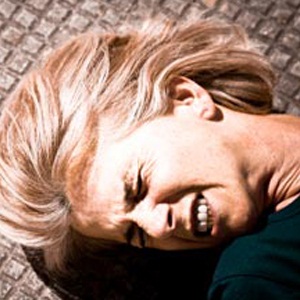
A simple vision test given on the sidelines can help identify athletes who've suffered a concussion, a new study finds.
All concussions caught
Researchers found that the test – known as the King-Devick, or K-D – was able to detect 79% of concussions among college athletes who were followed over a season. When the results were combined with those of two other screening tests, all of the concussions were caught.
The findings were released by the American Academy of Neurology (AAN), ahead of its annual meeting this spring.
Experts said the study bolsters evidence that the K-D is a reliable way to help spot athletes' head injuries – though the test, by itself, is not enough.
"People have been looking for quick, on-the-field screening tests," said Steven Broglio, an athletic trainer and director of the NeuroSport Research Laboratory at the University of Michigan in Ann Arbor.
Read: Concussion worse for women
Takes a minute or two
The new findings suggest the K-D is "one option", said Broglio, who was not involved in the study. "But it's not definitive, and you wouldn't want to rely on this alone," he added.
The K-D takes a minute or two, and it can be given by an athletic trainer, coach or even a parent right on the sidelines. It requires test-takers to read a few rows of single-digit numbers that are unevenly spaced, as quickly and accurately as possible. If they are slower to finish than they were on their "baseline" test – taken before the season starts – that's a potential sign of a concussion.
There are other sideline screening tests already in use, including ones that test balance and short-term memory.
Vision-related problems
But the K-D test "fills a gap" by looking for vision-related problems, explained study co-author Dr. Steven Galleta, chair of neurology at NYU Langone Medical Centre in New York City.
Concussions can cause a wide range of symptoms that are often subtle at first. Symptoms like worsening headache, dizziness, nausea, fatigue and confusion might not become obvious until hours after the knock to the head. Plus, even when athletes are suffering immediate problems, they might not tell anyone.
Read: Sports concussions: myths and facts
"Some athletes don't recognize the symptoms, and some try to hide them because they want to stay in the game," Galleta said.
A number of professional groups, such as the AAN and National Athletic Trainers' Association, say that athletes who've potentially suffered a concussion should be taken out of the game or practice immediately.
Read more:
Head injury: Concussion in rugby
Dietary supplements no good for concussion
New concussion guidelines tougher




 Publications
Publications
 Partners
Partners














